Contact us: digitalwages@ilo.org
Cambodia
Ensuring a responsible transition towards digital wages in the garment sector
In Cambodia, the garment industry provides formal jobs to more than 800,000 workers, of whom 80 per cent are women. Many of these workers are still receiving their wages in cash. World Bank data suggests that in 2021, only 33 per cent of male adults and 34 per cent of female adults had a bank account. The pandemic has led more employers to transition to digital wages to minimise human interactions during financial transactions, to continue to pay wages timely during factory suspensions and lockdowns and to wire government emergency support to the workers. The transition needs to be scaled up and conducted responsibly for the benefits of all workers, the factories and the government.
We support the transition to digital wages in partnership with Better Factories Cambodia (BFC). Since 2001, BFC has joined with workers, employers, government, and multinational businesses to spur improvements in factory working conditions and to boost the competitiveness of the garment industry. We leverage BFC’s expertise and ongoing work with 59 retailers and brands, over 550 factories, and 610,000 workers to achieve impact at scale.
Our intervention
- Document and disseminate evidence, good practices, and tools on responsible wage digitization
- Facilitate learning exchanges on wage digitization
- Build capacities of employers and workers’ organizations to support the transition
- Support garment factories and their workers to transition to responsible digital wage payments
- Forge local partnerships for interventions to support the responsible transition to digital wage payments and increase workers’ financial literacy.
- Engage and support financial service providers to offer inclusive digital wage solutions and associated services
- Facilitate social dialogue for a conducive regulatory and policy framework
Resources
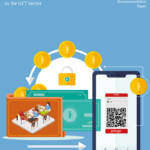 Responsible wage digitalization in the GFT sector
Responsible wage digitalization in the GFT sector How digital wages are changing Cambodian workers’ lives
How digital wages are changing Cambodian workers’ lives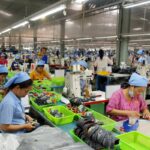 How to digitize wage payments responsibly – A guide for factories in Cambodia
How to digitize wage payments responsibly – A guide for factories in Cambodia Improving financial health in Cambodia’s garment sector through responsible wage digitalization: Benefits for women and business
Improving financial health in Cambodia’s garment sector through responsible wage digitalization: Benefits for women and business Navigating wage digitization: A rapid qualitative review of garment workers’ experience in Cambodia
Navigating wage digitization: A rapid qualitative review of garment workers’ experience in Cambodia Interview: ‘Digital payments are the future of payments for enterprises regardless of their size’
Interview: ‘Digital payments are the future of payments for enterprises regardless of their size’ Financial education for garment workers in Cambodia – Trainee’s booklet
Financial education for garment workers in Cambodia – Trainee’s booklet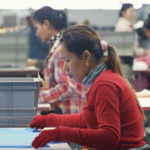 Joint actions towards responsible digital wage payments in Cambodia’s garment industry
Joint actions towards responsible digital wage payments in Cambodia’s garment industry A story of a Cambodia’s garment factory switching to digital wage payments
A story of a Cambodia’s garment factory switching to digital wage payments A responsible transition to digital wages: A timely step for Cambodia
A responsible transition to digital wages: A timely step for Cambodia Digital wages on the coast of Cambodia
Digital wages on the coast of Cambodia The potential gains of digitizing garment sector wages in Cambodia
The potential gains of digitizing garment sector wages in Cambodia Big potential for digitizing wage payments in Cambodia’s garment factories
Big potential for digitizing wage payments in Cambodia’s garment factories News
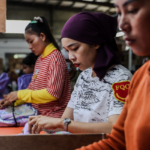 Beyond cash: How digital wages boost productivity and empower workers’ lives in Cambodia’s factories
Beyond cash: How digital wages boost productivity and empower workers’ lives in Cambodia’s factories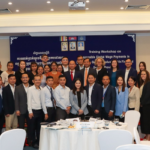 ILO, NBC, ABC and TAFTAC engage financial service providers in the promotion of responsible digital wage payments in Cambodia
ILO, NBC, ABC and TAFTAC engage financial service providers in the promotion of responsible digital wage payments in Cambodia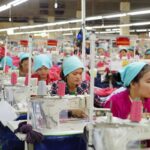 Promoting digital wage payments in the Cambodian garment sector
Promoting digital wage payments in the Cambodian garment sector New report: A rapid qualitative review of garment workers’ experience in Cambodia
New report: A rapid qualitative review of garment workers’ experience in Cambodia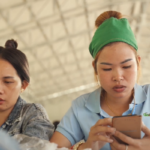 New videos: Responsible digital wage payments in the Cambodian garment sector
New videos: Responsible digital wage payments in the Cambodian garment sector Responsible transition to digital wages: A timely step for Cambodia
Responsible transition to digital wages: A timely step for Cambodia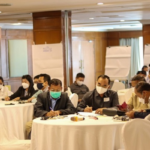 Workshop on digital wage payments in Cambodia’s garment industry
Workshop on digital wage payments in Cambodia’s garment industry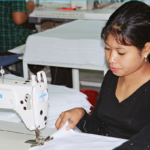 Ensuring a responsible transition towards digital wages in Cambodia
Ensuring a responsible transition towards digital wages in Cambodia Our partners
- Better Factories Cambodia
- Textile, apparel, footwear, and travel goods association in Cambodia (TAFTAC)
- Ministry of Labour and Vocational Training
- Workers' organizations
- International brands and retailers
- Garment, footwear and travel goods factories
- RISE
- Financial service providers
Our team
- Virak Nuon, Project officer



